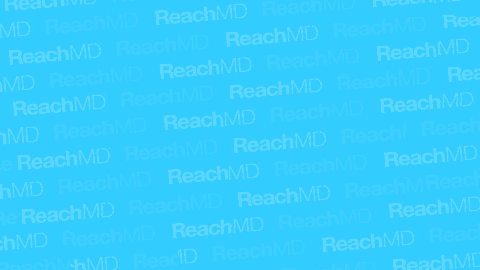According to the American Society of Clinical Oncology, the United States is in the midst of the longest sustained period of flat federal funding for cancer research. In what ways does this lapse in financial support hinder our ability to find cures and save the lives of patients suffering from any of a range of illnesses? How does it impact the livelihood of our researchers? Host Dr. Bruce Bloom discusses these critical issues with Dr. Jordan Berlin, associate professor of medicine and clinical director of gastrointestinal oncology at Vanderbilt University School of Medicine.
ReachMD
Be part of the knowledge.™We’re glad to see you’re enjoying ReachMD…
but how about a more personalized experience?
Cutbacks in Federal Funding for Cancer Research

IMPACT OF CUTBACKS IN FEDERAL FUNDING FOR CANCER RESEARCH
Our presidential election is only days away. Forty eight million people in America are uninsured and healthcare costs are rising 2 to 3 times faster than our nation’s GDP. Where will America’s healthcare system be in 5 years? Welcome to ReachMD’s monthly series focused on public health policy. This month we explore the many questions facing healthcare today.
According the American society of clinical oncology, the United States is in the midst of the longest sustained period of less funding for cancer research. How is this going to impact the patients, which we are finding cures and saving lives? Welcome to a special public policy segment on ReachMD XM 157. I am your host Dr. Bruce Bloom, joining us to discuss the impact of cutbacks in federal funding for cancer research is Dr. Jordan Berlin, Associate Professor and Clinical Director of Gastrointestinal Oncology at the Vanderbilt University Of Medical Center in Nashville Tennessee.
Dr. BRUCE BLOOM:
Dr. Berlin welcome to ReachMD.
Dr. JORDAN BERLIN:
Thank you.
Dr. BRUCE BLOOM:
So, can you quantify for us the cutbacks in dollars allocated for cancer research funding.
Dr. JORDAN BERLIN:
There has not really been a cutback so much as inflation has occurred and they have been giving flat funding, so I have heard numbers of an absolute decrease of 10% in funding, but I think the best quantification is that the pay out line for research grant have gone way, way down to the point where less than 1 in 10 grants are going to get funded and very few, if ever, get funded on the first try anymore.
Dr. BRUCE BLOOM:
So, tell us psychologically what that means when you are in the single digits there, less than 1 out of 10. What does it mean for you as somebody who is trying to get research funded to help patients
Dr. JORDAN BERLIN:
I think most of the medical professionals will be familiar with this Skinner box in which dogs were electrocuted until they went into helplessness. I would say that that is what this is doing. Honestly, it is very, very frustrating for especially new investigators. They come in, apply for research grants, and continually get turned down and actually apply with the expectation that they will get turned down at least once or twice and almost never have a chance of getting our research fund grant in just one try.
Dr. BRUCE BLOOM:
I have heard from other some seasoned grant writers and researchers that they have actually put in lots more grant request because the odds are so low that they figure if they put in 10, may be they will get 1 funded instead of putting in the top 2 that they really want. Have you seen that happened as well?
Dr. JORDAN BERLIN:
Yes, I think that is happening all over. I think it is very common for people to put in first more applications for grants and second complementary applications to multiple different grant RFAs or systems even, outside of the NCI other systems suggest private enterprises.
Dr. BRUCE BLOOM:
Do you sit on any grant review committees?
Dr. JORDAN BERLIN:
No, I am in ad hoc review and around 1 grant review committee right now and have not had to do it in a while. I don’t think that one is getting much funding right now.
Dr. BRUCE BLOOM:
And if you were a reviewer would this add to the complexity and the time that it takes to do you job?
Dr. JORDAN BERLIN:
Yes, it also puts a lot more burden on the grant reviewers because now you are getting a lot more grants and you are getting a lot more reapplications. So, every grant can be resubmitted twice more or total of 3 submissions and if none of the grants were really go through on the first try, you know that they are all coming back because it is a lot easier to resubmit than to write a brand new one, but each one has to be re-reviewed in full, so that the number of grants that keep coming through is going to go up to number of grants you need to be reviewed or keep going up and frankly grant review is although to some extent compensated, basically a volunteer activity.
Dr. BRUCE BLOOM:
So, it is harder to get funding into the institution. Are there roadblocks within the institution because of this lack of funding that are harming our ability to do more research?
Dr. JORDAN BERLIN:
I think, within the institution the big roadblock from this lack of funding is more of collaboration issue. There I saw something in an article stating that researchers will be more hesitant to collaborate with others or give them the information that they are using to apply for a grant that may actually promote research because they need that information to apply for the grant, and they are afraid if they give it out, it will interfere more with their ability to get the grant saying the other people may use their data to get a grant, but otherwise, they would be able to get it. So, I think the interference is more with communication. I am lucky I work at Vanderbilt, which is a very collaborative organization, but either decreased collaborations with other institutions because of this I could not tell you, but reading that an article I thought was a very intriguing concept that I had not considered before.
Dr. BRUCE BLOOM:
So, you are saying that people have to be a little more protective of their own intellectual property and ideas because it is so much more difficult to get federal funding for their research.
Dr. JORDAN BERLIN:
Yes, and then actually the word intellectual property always brings up one of the roadblocks anywhere and that more and more people are looking towards very intellectual property as potential source of revenue. So, there is a lot more protection of the intellectual property from an institutional standpoint in terms of legal protections that could hamper protocols or research going forward while people are negotiating where intellectual property lies when collaborating with others.
Dr. BRUCE BLOOM:
So, we have now identified 3 roadblocks that are pushing things away from patients, lack of funding, or more expensive research. Second thing was this intellectual property issue and protecting it and making sure that it comes to ________, and the lack of collaboration, so how are the patients suffering from this and where have you personally found this frustrating.
Dr. JORDAN BERLIN:
Well! I think, patients are suffering from a variety of things, I mean, in addition to the fact they are suffering from cancer and they are in a rush to get things done and system is not. The system is one with when you think about it. If you have a great idea for research grant, it takes a few months to write a grant. You submit it. It takes several months to get the results back and you have to submit it twice more so that research grant is being delayed now. That may or may not generate an idea, but generally that is a preclinical idea, and after you get the preclinical data, then you have to go for the clinical trial and that is another grant or another application to accompany or something to move it to the next level. Each step of the way is being slowed down so in the way patients are being affected is that great ideas are being slowed down. In addition, the fact is that the grant system the way it is written is when this limited funding tends to go towards the less innovative ideas. Things with a greater chance of success, even if it may be minimal success, will tend to have a better chance of getting grant approval than something with a lower chance of success, but possibly a higher pay out if it is successful.
Dr. BRUCE BLOOM:
So, let's follow up a little bit on these innovative ideas. So, you are saying that some drug combination that might increase the life for 3 months will get funding because it is pretty clear it will do that and so that research gets funded, but some new drug combination that we don’t know anything about that might extend life for 5 years, but is innovative, is not going to get money. How frustrating is that for you?
Dr. JORDAN BERLIN:
Well, it is extremely frustrating. There are lot more road blocks unfortunately than one would like for the truly innovative ideas, but the whole idea here is that people will have high risk ideas, meaning things that may turn out to have great pay out, but really there is very little known about, and people will have ideas that build on data that is already existing and generally those ideas you have a fairly good idea where the pay out is going to be so to speak, what the benefit is going to be, although it may be lower overall, you already know, and you have a much better idea of what the chances are of success. Those will get preferentially scored better because they have got a lot more background there.
Dr. BRUCE BLOOM:
Let's talk about disparities in findings among different cancers. Is there any formula for how we decide, how the money gets distributed, is it by how many people have the cancer, how serious their cancer is, is there any rhyme or reason to it.
Dr. JORDAN BERLIN:
There is a not a full rhyme or reason. To some extent when it comes to funding, there is some impact by what is being pushed by the NCI at the time. There may be a push, for example, a few years ago, there was a push for by the pancreas cancer action that worked, and talked to congress and to really get people to think about funding pancreas cancer, and there was some slight preferential funding for pancreas cancer, which receives basically non-preferential funding. Pancreas cancer is one of the most underfunded, especially when you look at per patient death of all the cancers and considering is the fourth leading cause of cancer death, the fact that we spent 60 to 70 million dollars a year on pancreas cancer research finding is pretty pitiful, but there was at little push and that comes for breast cancer and prostate cancer and frankly to some extent some of that preferential funding gets pushed by the advocacy groups, so the better your advocacy groups, the better chance you have. There are lots of disease which don’t have advocacy groups.
Dr. BRUCE BLOOM:
So, if you are in charge of allocating the funding. How would you do? Would you do it on the seriousness of the disease and how quickly it goes?
Dr. JORDAN BERLIN:
Ideally, I would, but I would really look at again what's the most innovative idea because the truth is that for any cancer there is a chance that your cancer research could benefit somebody else's cancer. Because something works in breast cancer does not mean it is only going to work in breast cancer and the same thing can be said for lung or prostate for the most part. I mean there is somethings like hormonal therapy for prostate cancer that is clearly going to work better for prostate cancer, but the research can lead to developments elsewhere. We have benefited from research in HIV treatments as well as the research in cancer, but the fact is that I think it should be allocated a little more closely to align with number of patients who suffer with the disease and more importantly number of patients who die from the disease. Pancreas cancer with 5% survival rate, again, I am biased because I do pancreas cancer research. Really needs more funding, but I would say that when you are talking about pancreas cancer research needing more funding, it shouldn’t be at the expense of breast cancer research which nobody would argue is over funded. It is the best funded per patient death of all the cancers, but it is certainly not over funded and so one of the other problems is that if you push for your cancer to be funded than somebody else has to pay the price.
Dr. BRUCE BLOOM:
What is the relationship between public funding through NCI or NIHN, private funding through the groups or through foundations? How does that balance out in particular over at Vanderbilt?
Dr. JORDAN BERLIN:
I don’t actually known Vanderbilt's balance of how much is private versus public funding. The majority of our funding comes from NIHN. We have actually done fairly well maintaining our funding despite the very tough environment right now and actually growing our funding up until recently, but the private funding, the public funding are not aligned as far as I can see. They certainly don’t communicate with each other and again there is a place where the funding comes based on the interest even more so than the public funding. What pancreas cancer group or breast cancer group would fund a colon cancer trial, so if you have more voices out there helping to raise funding for your disease, you are going to have more private funding for your disease and most people who choose to develop private foundation with somebody in their mind, somebody who they loved and cared for and who had to battle that cancer and therefore the foundation is focussed towards whatever that person had.
Dr. BRUCE BLOOM:
Have you seen at Vanderbilt or in your area of cancer research, researchers that are focused on 1 disease, they actually apply to a different disease, non-profitable organization because they think they will be able to get some money to further their research, even though that is not the primary focus of their research.
Dr. JORDAN BERLIN:
Yes, I have, but having set that I will caveat that lot of our researchers focus on a disease because that is what they start out doing but they have chosen a pathway, so there are a variety different pathways, mostly protein pathways like the EGF receptor pathway or IGF receptor pathway and the focus is really in a pathway, and so it is not so crucial that they stick to a disease anymore when they are doing research in that way, so reapplying something that they thought of that may not have gotten funded in 1 disease to another disease more frankly might just be more relevant. It is a great way to get funding, and again, these disease-oriented foundations are great places to go. They are wonderful people who do great things and actually have been growing their work as much as they possibly can, but it is hard to make up for the billions of dollars that government can found.
Dr. BRUCE BLOOM:
I would like to thank our guest, Dr. Jordan Berlin, Associate Professor and Clinical Director of GI Oncology at the Vanderbilt University Medical Center in Nashville Tennessee. We have been discussing the impact of cutbacks federal funding for cancer research.
You have been listening to a special public policy segment on ReachMD XM 157, the channel for medical professionals. For complete program guide and podcast visit www.reachmd.com. For comments and questions call us toll free 888 MD XM 157 and thank you for listening.
You have been listening to public health policy in America, a special ReachMD XM157 interview series with our nation’s top thought leaders in public health. This month, ReachMD XM157 will be discussing the many issues challenging public health policy in America. For a complete schedule of guests and programming information, visit us at ReachMD.com.
Recommended
Overview
According to the American Society of Clinical Oncology, the United States is in the midst of the longest sustained period of flat federal funding for cancer research. In what ways does this lapse in financial support hinder our ability to find cures and save the lives of patients suffering from any of a range of illnesses? How does it impact the livelihood of our researchers? Host Dr. Bruce Bloom discusses these critical issues with Dr. Jordan Berlin, associate professor of medicine and clinical director of gastrointestinal oncology at Vanderbilt University School of Medicine.


Facebook Comments